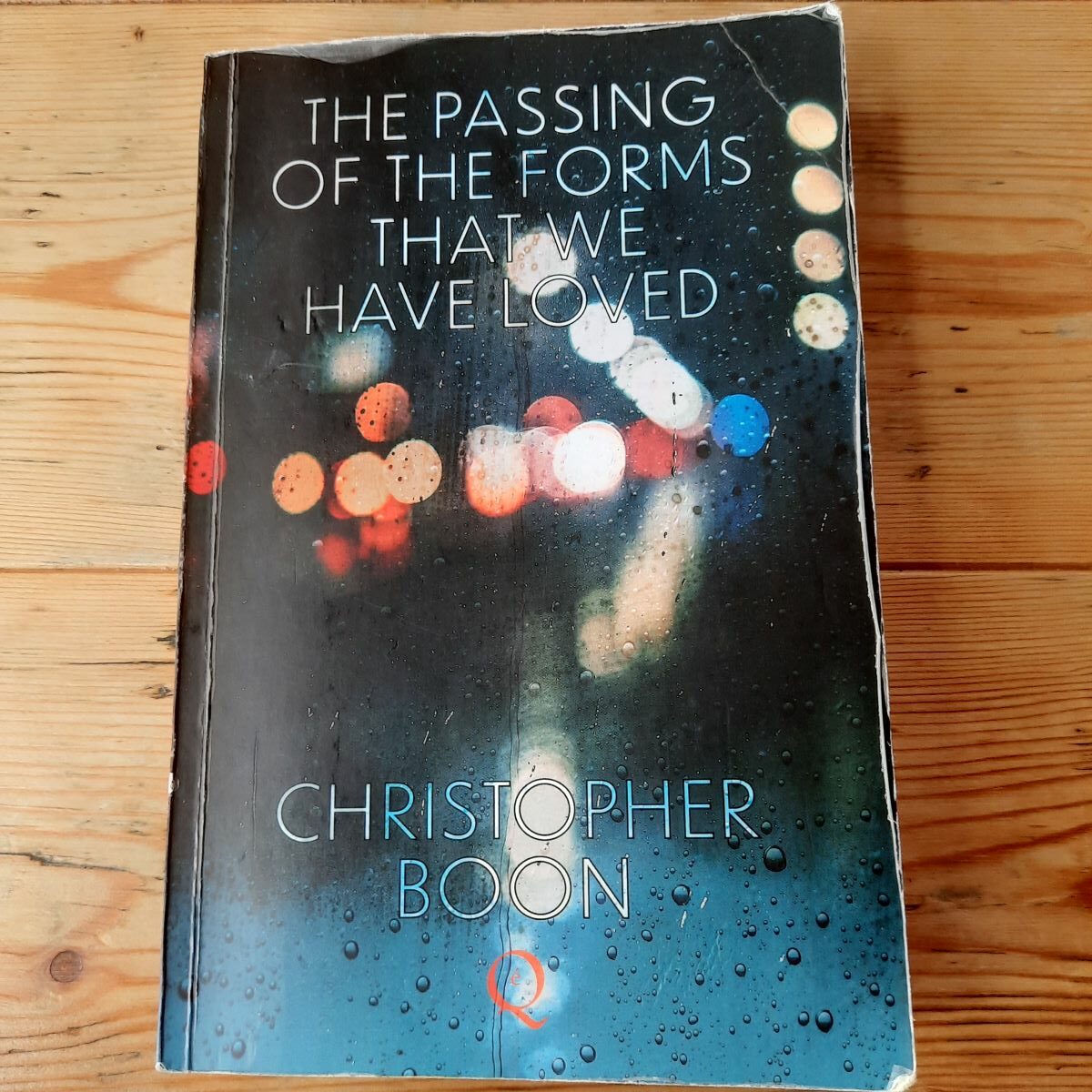reviewed by Chris Richards.
Breathless, frustrated, then ultimately a release. Christopher Boon’s fiction debut is an Epic in fewer than 350 pages. The protagonist’s father has terminal cancer, this alongside relationships new and old, all examine dependency, solitude and indecisiveness as main themes. Not for the faint of heart but truly an immersive experience. The narrator is never named but the reader comes to know his grief, anxiety and doubts as if they are our own. Graphically minute descriptions of natural and urban scenery are jarringly mingled with his father’s symptoms taking hold to ravage body and person. Timelines are mixed and experienced from the darkness behind our narrator’s eyes, so are interspersed with memories, comparisons, fantasy and sometimes reality.
I have said books have felt visceral before in previous reviews but this is a whole new experience. I genuinely found myself having to disengage from the text to regulate my breaths and untense my muscles, just to dive back in for more. Written in the Japanese style of prose; it is not a story, it is art. Art for those who might struggle to gaze at a painting or sculpture and feel the intention behind it. Henrik Ibsen’s para-phrased adage, ‘one picture is worth a thousand words´ kept coming to mind as I thought about writing this review. These are the words that only pictures could succinctly describe.
Minimal punctuation (no commas or quotation marks) makes it a challenging read but including it may have distracted from the palpable atmosphere and feelings drawn out by the flow and distinctly internal nature of the narration. It begs the question, do our thoughts adhere to the rules of punctuation? Boon doesn’t seem to think so.
The work is separated into three parts: Death, Disintegration and Dismemberment. Ambiguity and allowing readers to be mislead, makes the feelings created not only tangible but disorientating and occasionally disturbing. In retrospect there are bell curves of depression, grief and anxiety throughout the work but the book ends as it begins, with hope. It cannot honestly be described as a happy ending but I feel potential for change and future contentment. Call me an optimist. Readers can, as always, decide how the characters live on beyond the words written about them.
To commit to this book is to be rewarded with insight and the closest to living vicariously through someone else’s grief as I’ve experienced from fiction. I’d be intrigued to read more fiction from Boon in the future, so as always, I live in hope.
Published by époque press and available to buy from their website now.
Could you help to support In Common, for as little as £1 a month? Please help make us sustainable with a monthly donation. Visit: patreon.com/incommonsoton

